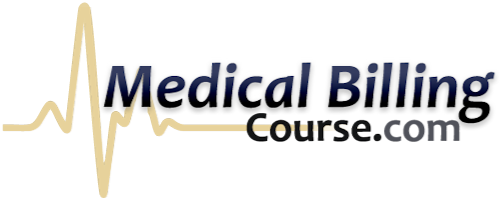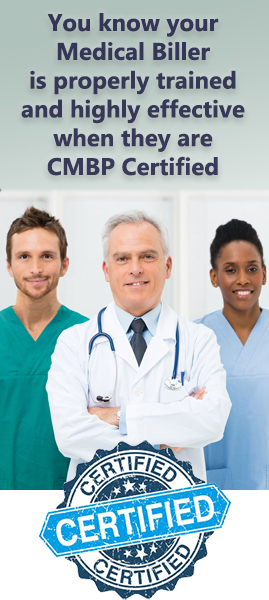- 09/29/2025
- Posted by: Medical Billing Course
- Categories: Medical Billing Compliance, Medical Billing Course, Medical Billing Jobs

Think of ethical medical billing as your superpower. It’s not just about pushing papers; it’s about protecting patients, keeping healthcare providers in the clear, and yes, safeguarding your own future. Every accurate claim you submit is like a brick in the foundation of trust you’re building.
Every correct billing detail you submit helps protect your reputation and keeps your practice (which means you) legally safe.
Maintaining ethical practices in medical billing safeguards patients, healthcare providers, and billing services. When billing is honest and accurate, it builds trust and ensures compliance with regulations.
Understanding common fraud schemes and how to prevent them is essential. Proper knowledge helps avoid costly mistakes and possible legal penalties.
This guide offers clear, practical insights on how to uphold medical billing ethics and prevent fraud. Staying compliant is critical for a successful and reputable billing business.
Why Medical Billing Ethics Are Critical for Your Success
Medical billing ethics means doing the right thing every time you submit a claim. It’s about honesty, accuracy, and following the rules.
Practicing with integrity benefits everyone:
- Patients receive correct bills and trust that their data is protected.
- Healthcare providers avoid legal problems and protect their reputation.
- Billing services build trust and stay compliant with industry standards.
Ethics are closely connected to compliance. When you follow ethical practices:
- You help prevent fraud and abuse schemes.
- You reduce the risk of costly fines and legal action.
- You support a trustworthy healthcare system.
Staying committed to medical billing ethics is essential for a successful, reputable business and for making a positive difference in patient care.
Key Points from the 2025 DOJ National Health Care Fraud Takedown
Recent enforcement efforts from the Department of Justice highlight the ongoing risks and importance of ethical practices in medical billing.
- 324 defendants charged with health care fraud, including 96 licensed medical professionals
- $14.6 billion in fraudulent claims targeted (intended loss)
- About $2.9 billion in actual government loss confirmed so far
- Law enforcement seized over $245 million in cash, luxury vehicles, and other assets linked to fraud
- The schemes include organized criminal syndicates defrauding Medicare, Medicaid, and other programs
Common Types of Medical Billing Fraud and Abuse
Understanding the types of fraud and abuse helps protect your practice and ensure compliance. Here are some common schemes and unethical practices you want to stay far away from:
Fraud and Abuse Types
- False Claims: Submitting claims for services not provided
- Misrepresenting Services: Providing inaccurate descriptions of services to receive higher reimbursement.
- Upcoding: Billing for more expensive services or procedures than those actually performed, or using codes that represent a more severe diagnosis to receive higher reimbursements. This can include billing for unnecessary procedures or inflating hours of service.
- Unbundling: Separately billing components of a procedure that are typically grouped together for a single payment, thereby increasing total reimbursement improperly.
- Ghost/Phantom Billing: Charging for services, treatments, or equipment that were never provided or used, such as billing for blood tests never conducted or medical equipment never delivered.
- Multiple Billing / Double Billing: Submitting multiple claims for the same service, either to one payer or multiple payers.
- Risk Adjustment Fraud: Manipulating patient diagnoses or data to make patients appear sicker than they are in order to receive higher payments, often seen in Medicare Advantage plans.
- Kickbacks: Illicit payments or financial incentives offered to induce referrals or billing for unnecessary services, often disguised through sham contracts or rental agreements.
- Failing to Collect Copays or Deductibles: Intentionally waiving patient financial responsibilities to increase billed amounts to insurers or hide improper billing.
- Impersonation and Identity Theft: Using another patient’s insurance information or impersonating patients to submit fraudulent claims or negotiate bills.
- Billing for Medically Unnecessary Tests or Services: Recommending and billing for diagnostics or treatments that are not medically justified to increase reimbursement.
- Consumer Fraud: Including patients using fake or stolen insurance, fake injuries, or staging accidents to claim benefits fraudulently.
Recognizing these schemes is key to avoiding unintentional violations. Proper training and vigilance in billing practices protect your practice and ensure compliance with industry standards. Medical Billing fraud costs taxpayers millions every year.
How to Detect and Prevent Medical Billing Fraud

Protecting your practice starts with knowing how to spot and stop fraud before it causes legal or financial issues. Here are practical tips to detect and prevent medical billing fraud:
Detecting Medical Billing Fraud
- Regular audits help identify suspicious billing activity or errors early.
- Review claim documentation thoroughly to ensure all services billed are supported by the patient’s records.
- Monitor billing patterns for unusual spikes, high volumes of specific services, or inconsistent coding.
Preventing Medical Billing Fraud
- Adhere to published coding guidelines and billing standards at all times.
- Train staff on compliance standards regularly to keep everyone informed and vigilant.
- Use billing software with fraud detection features that flag unusual claims or billing patterns automatically.
Implementing these practices helps ensure your billing remains ethical and compliant. Staying proactive protects your practice from costly violations and builds trust with payers and patients alike.
Popular Detection Methods:
- Statistical Analysis: Basic tools like Benford’s Law can help identify suspicious billing data by highlighting unusual numerical patterns, such as an abnormal frequency of certain leading digits.
- Outlier Detection Tests: Methods like Grubbs’ test, Hampel’s test, or T-tests spot extreme values or billing behaviors that differ significantly from normal patterns. These approaches act as efficient, low-cost screening tools to flag potential issues for further review.
- AI and Machine Learning: AI systems continuously monitor billing transactions in real time. They can flag claims that match known fraud patterns such as upcoding, phantom billing, or identity misuse. These algorithms cross-check claims against provider schedules, patient records, and historical data to identify discrepancies and unusual billing behaviors quickly. The alerts generated by AI enable early action, helping to reduce financial losses and improve overall billing accuracy and compliance.
- Automated Tools: Fraud detection software can identify repeated claims for the same service or patient, inconsistencies between diagnosis codes and treatments, and other red flags across large datasets, providing timely alerts for investigation.
Prevention Strategies:
- Real-time Monitoring and Alerts: Continuous monitoring allows organizations to stop suspicious claims before payment is made, saving substantial costs and effort.
- Staff Training and Compliance Programs: Educating billing staff about common fraud schemes and compliance requirements ensures vigilant and ethical billing practices.
- Strong Internal Controls: Implementing procedures for claim verification, authorization checks, and routine audits reduces the risk of fraudulent claims passing through.
- Collaboration with Regulatory Bodies: Sharing information and best practices with government agencies and insurers helps stay ahead of emerging fraud tactics.
- Use of Updated Technologies: Leveraging cutting-edge AI and data analytics systems enhances accuracy in detecting fraud and maintains compliance with evolving regulations.
Consequences of Medical Billing Fraud

Engaging in medical billing fraud can have severe consequences. It’s important to understand the risks involved:
- Legal repercussions include hefty fines, penalties, and even criminal charges.
- Fines can amount to thousands or millions of dollars, depending on the severity of the violation.
- Criminal charges may lead to imprisonment for those found guilty of intentional fraud.
- Damage to reputation can be lasting, affecting your ability to work in healthcare or billing for years.
- Loss of licensure or certification is a real risk, especially if authorities find repeated or serious violations.
Maintaining compliance and practicing ethical billing isn’t just a best practice. It’s a legal requirement. Staying within the rules protects your business, your license, and your future. The costs of fraud far outweigh any short-term gains, making honesty the best policy in medical billing.
How Medical Billers Play a Key Role in Maintaining Ethics
Medical billers are essential in upholding ethical standards in healthcare billing. Their actions directly impact compliance, accuracy, and trust.
Responsibilities of Medical Billers
- Ensure all codes are accurate and supported by documentation.
- Validate that billing practices follow current regulations and guidelines.
- Review claims thoroughly before submission to prevent errors.
- Report any suspected fraud or abuse to the appropriate authorities.
- Continuously update knowledge of industry rules and standards.
Best Practices for Ethical Billing
- Accurate coding is fundamental. Use correct codes that reflect the services provided.
- Honest documentation supports every claim. Never falsify or exaggerate services.
- Stay informed about regulatory updates through training, industry news, and professional resources.
- Attend regular training sessions to keep skills and knowledge current.
- Use billing software wisely to reduce errors and flag potential issues automatically.
Following these best practices helps maintain integrity and ensures your practice remains compliant. Upholding high ethical standards benefits everyone involved and sustains your reputation as a trusted medical biller.
Medical Billing Ethics and Fraud Prevention FAQs
What is the difference between medical billing fraud and abuse?
Answer: Fraud is intentional deception for financial gain. Abuse involves billing practices that are inconsistent with accepted standards, often resulting in overpayment, but without intentional deception.
What are common examples of medical billing fraud?
Answer: False claims, upcoding procedures, unbundling services, and billing for services not provided.
How does the government crack down on medical billing fraud?
Answer: Through audits, investigations, fines, and criminal prosecution. Agencies like the OIG and CMS monitor and enforce compliance.
What role do medical billers play in preventing fraud?
Answer: They ensure accurate coding, review documentation, and report suspicious activity to stay compliant and prevent fraudulent practices.
What are the legal ramifications of being involved in medical billing fraud?
Answer: Penalties can include fines, exclusion from federal healthcare programs, criminal charges, and imprisonment.
Protecting Your Career Through Ethical Billing
Maintaining strong medical billing ethics is essential for avoiding fraud and ensuring compliance. Ethical practices protect your practice, your reputation, and your future in healthcare billing.
Ongoing education is key. Staying informed about industry standards, regulatory updates, and best practices helps you remain compliant and ethical. Resources like the Medical Billing Course provide affordable and flexible training to keep your skills sharp.
Upholding honesty and integrity in billing not only safeguards your career but also builds trust with patients and providers. Ethical billing is the foundation of a successful, reputable practice.
Learn more about medical billing and start your career today!

